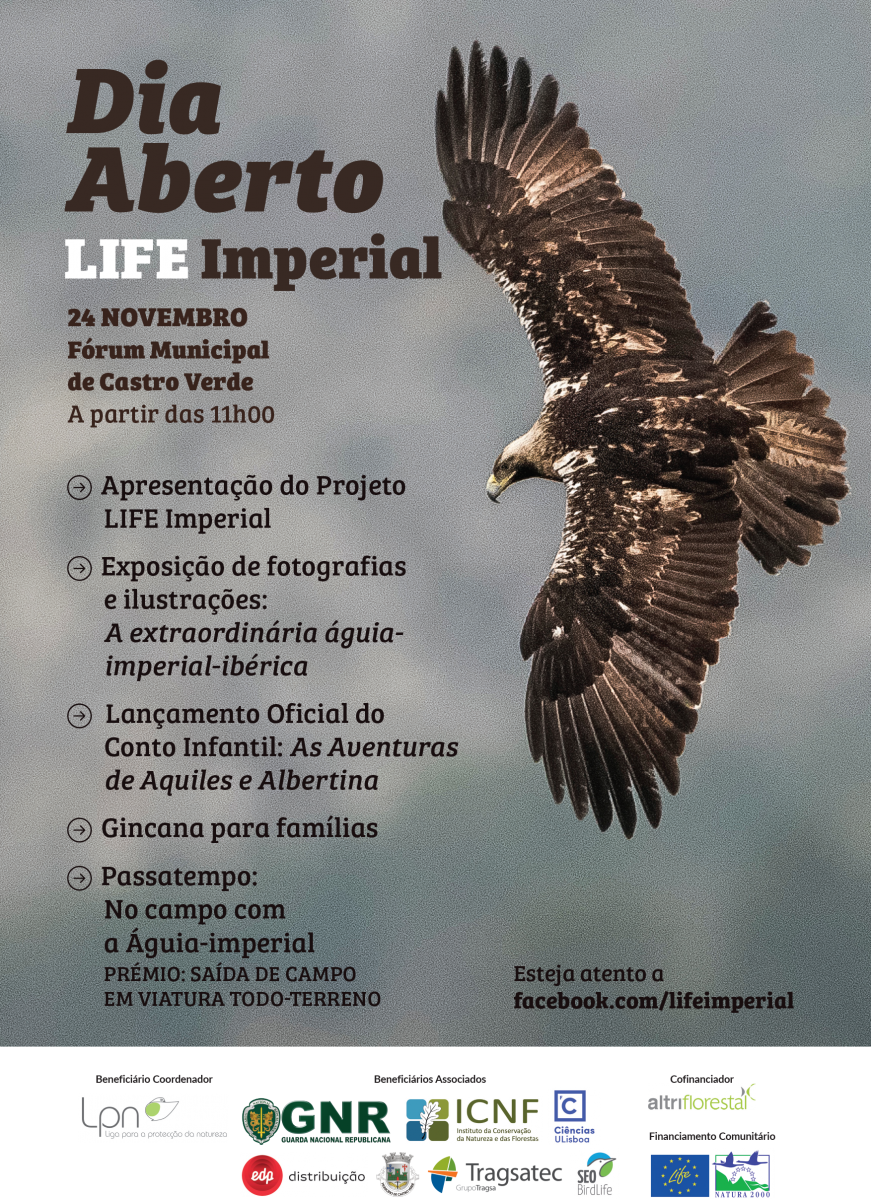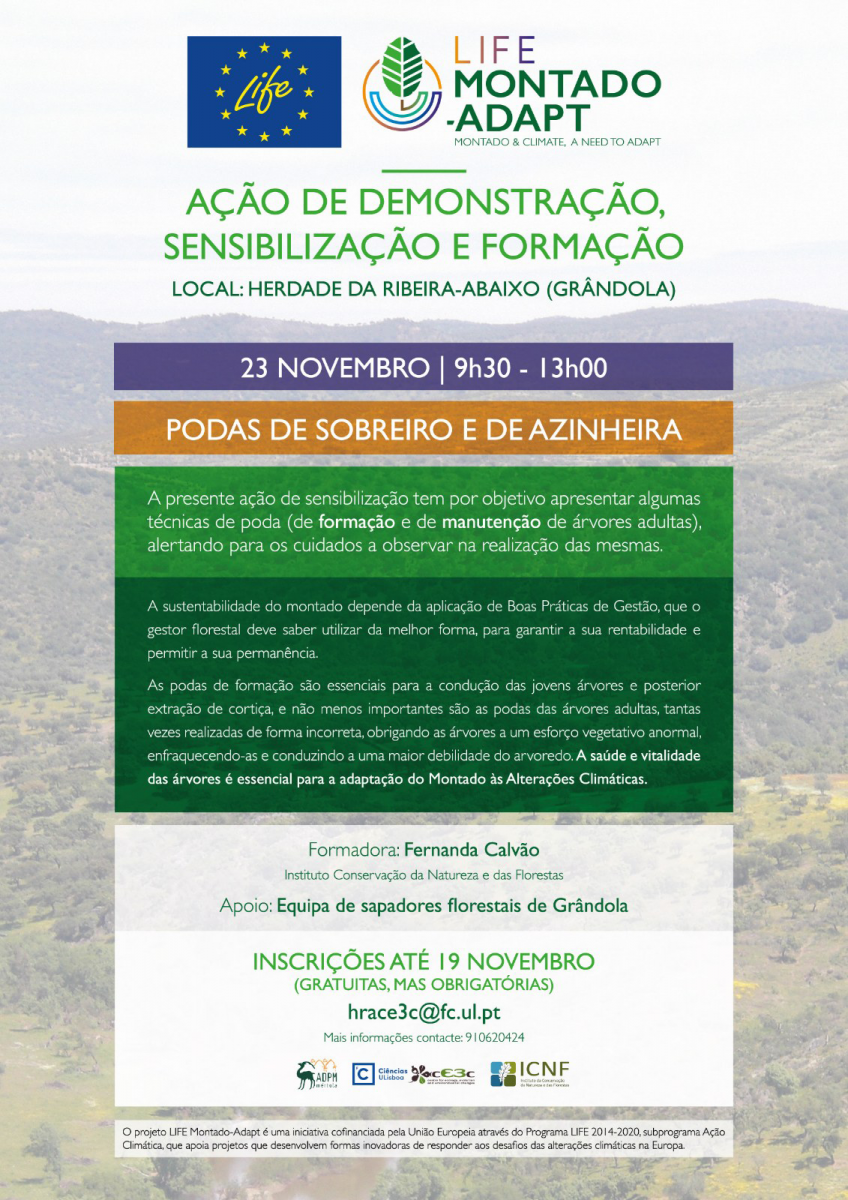Dia Aberto LIFE Imperial
Iniciativa no âmbito do Projeto LIFE Imperial “Conservação da Águia-imperial-ibérica (Aquila adalberti) em Portugal”, desenvolvido em parceria com Ciências ULisboa.

Iniciativa no âmbito do Projeto LIFE Imperial “Conservação da Águia-imperial-ibérica (Aquila adalberti) em Portugal”, desenvolvido em parceria com Ciências ULisboa.

Por Andreia Sousa (CCIAM - Research Group, cE3c).
Climate change is altering the chemical, physical and biological processes in the marine environment. Observed impacts driven by climate have been recorded and include changes in the geographical distribution, timing of seasonal migrations, breeding biology and behaviour of species. A number of qualitative and quantitative methodologies have been developed over the years to assess the vulnerability of species to climate change.
Por Claudia Bank (IGC - Instituto Gulbenkian de Ciência).
Por Jagoba Malumbres-Olarte (Post-Doc Researcher, cE3c group Island Biodiversity, Biogeography & Conservation).
Evento de entrada livre, mediante inscrição prévia (hrace3c@ciencias.ulisboa.pt / tm: 910 620 424).
Após a formação, pretende-se realizar uma ação de voluntariado de podas na HRA que decorrerá dia 23 de tarde e dia 24 de novembro.

Por Ian Baldwin (Director of the Department of Molecular Ecology, Max Planck Institute for Chemical Ecology).
Por Anna Sapfo (Department of Computational Biology, University of Lausanne, Switzerland and Swiss Institute of Bioinformatics, Lausanne, Switzerland).
Por Scott R. Miller (Professor at University of Montana).
Por Teresa Mouga (MARE-IPLeiria).
O ciclo de palestras Quintas do MARE, organizadas pelo Centro de Ciências do Mar e do Ambiente (MARE), realizam-se quinzenalmente, às quintas-feiras, tendo como objetivo divulgar o trabalho de investigação efetuado pelo MARE e por convidados externos a trabalhar em áreas de investigação afins, a um público alargado.
As palestras caracterizam-se por uma abordagem acessível a pessoas com uma formação de base diversa, aos temas de investigação de base e aplicada na área do mar e bacias hidrográficas.
Paulo Jorge Gomes Pereira da Costa defende a tese "The human mRNA decay machinery: an unexpected role for DIS3L2 over nonsense-mediated decay targets".